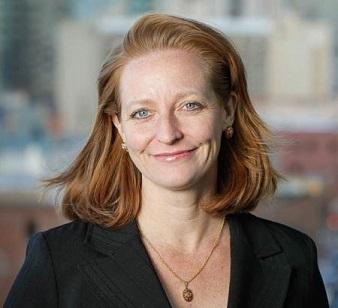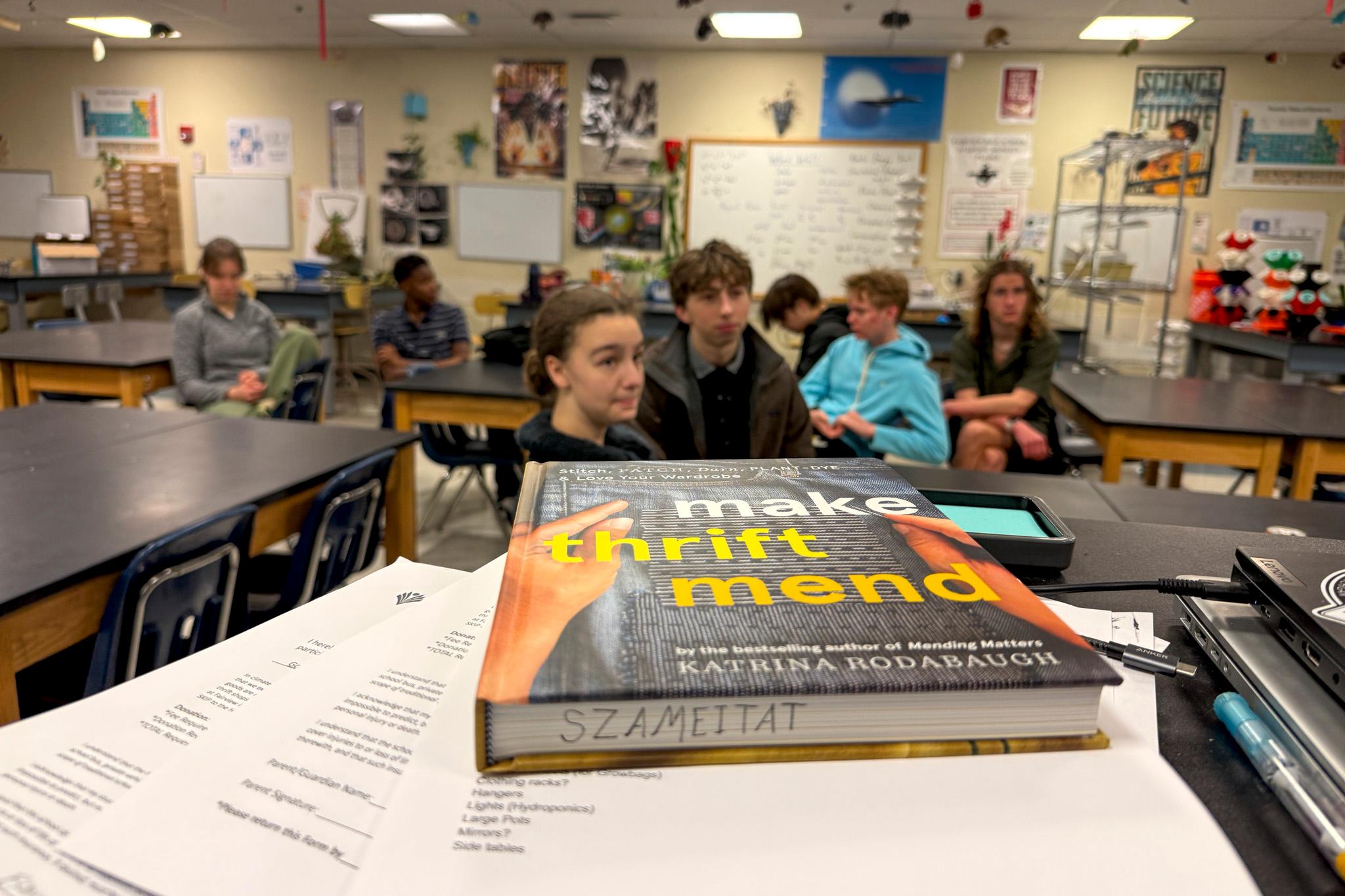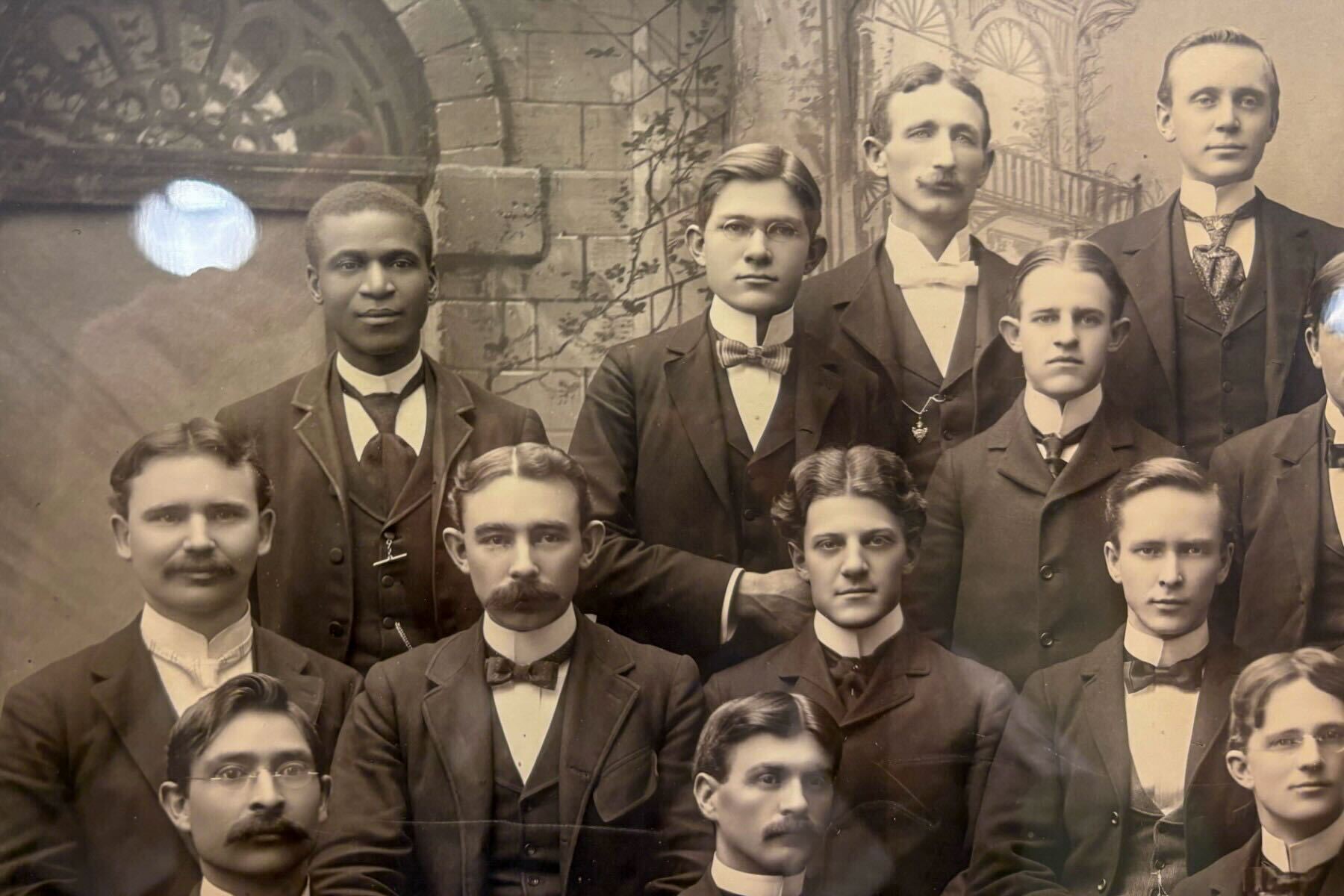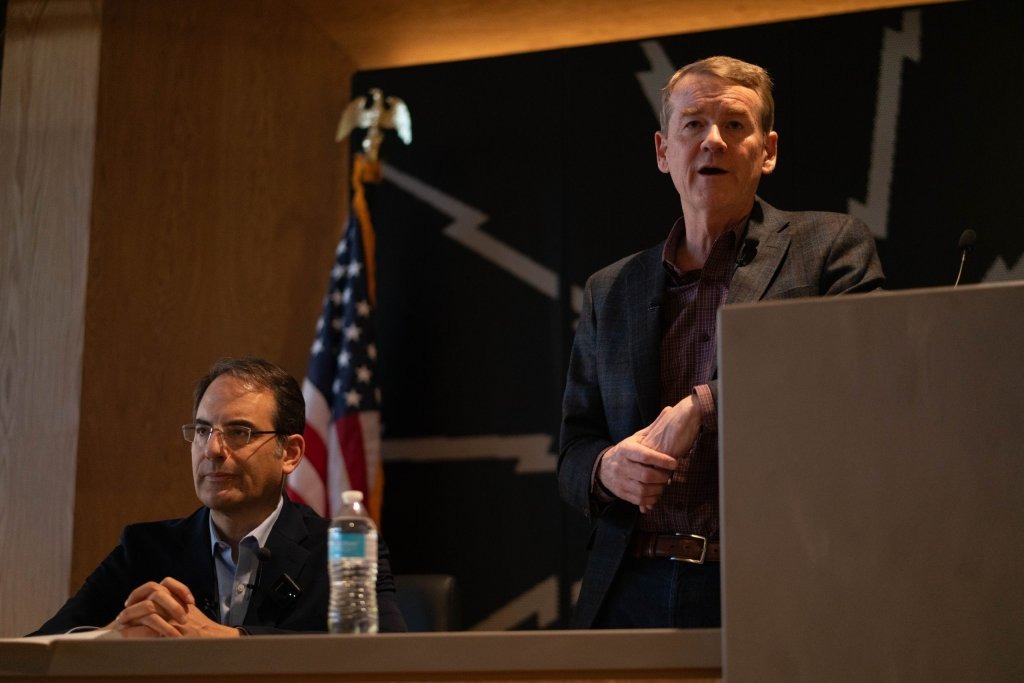
It's time for a big change in the way the traditional Democratic party works, the state chair told Colorado Matters Monday.
"We need to radically rethink the view of ourselves as a club and think of ourselves as a political movement," said Morgan Carroll, a former president of the Colorado state senate.
- Related: State GOP Chair Says It'd Be 'Silly' For Their Party To Exclude Unaffiliated Primary Voters
Democrats are already seeing increased activism in advance of a change in state election law that will allow the state's 1.2 million voters to participate in party primaries for 2018, Carroll said. She's also warning an unusually large crowd of Democratic candidates for governor not to wage war against each other and hurt the party's chances in the general election. "It's an act of self-sabotage," she said.
Read the Transcript:
Ryan Warner: 2018 is shaping up to be an unpredictable year in Coloardo politics. There are so many people running for governor, it's easy to lose track. And the parties have a big change to deal with: a new law allows the state's 1.2 million unaffiliated voters to vote in a primary. Today and tomorrow we hear from the state chairs of the two major parites. Tomorrow, Republican Jeff Hays. Today, Democrat Morgan Carroll. She's a former president of the Colorado state senate from Aurora. This new state law, which allows unaffiliated voters to vote in a primary, is supposed to get more centrists involved in choosing candidates, perhaps push the parties away from ideological extremes. Do you think it will have that effect? Morgan Carroll: My hope is it'll push the candidates and campaigns to be more relevant. When you have a small group of people picking, even more so than left, right, center, you get in a bubble where you reinforce each other's same issues, and I think it's actually going to be a healthy thing to have all these new folks coming in, getting engaged earlier in the process, weighing in on who the candidates are, and helping shape not just who's running, but what are the platform issues we should be talking about? RW: Are you already seeing signs of that, that the issues are appealing to a broader crop, or do you think this is a pretty lefty primary so far? MC: I'm seeing signs insofar as looking at a huge groundswell of new activism and participation. People who had been Green candidates before, and one of the new changes with the Democratic Party is typically, you look to Democrats to volunteer with the Democratic Party. We're already seeing and welcoming a lot of unaffiliateds getting in to get engaged, particularly if they're concerned about the direction that either Trump or the Congress in DC is headed. RW: So that's the voters, but what about the candidates? Is it changing the candidates' message, do you think? MC: It's a little too soon to tell. RW: Okay. MC: I do think that the candidates and the party, and everybody's doing some soul-searching inventory about whether or not they've been connecting to voters, so I'm seeing a deeper dig to try and make sure that the candidates themselves are trying to be responsive to the issues that are truly on peoples' minds and- RW: Like what? MC: Well, so for example we've had a habit of relying a lot on DC consultants, and they'll poll an issue and they'll say, "Hey, choice is the number one issue," and then you'll see an entire campaign about choice, or- RW: Choice being abortion, you're saying? MC: Right. Reproductive rights or something like that. Or we'll come out and realize, "Hey, okay, the number one issue that you're seeing in a poll is how abysmally unpopular Trump is," and then suddenly everybody's Donald Trump in the polls. That type of thing happens in a campaign when you rely so heavily on consultants. And I think what the party and what candidates are starting to do, is realize you better be taking your cue directly from the voters, and maybe you can partly tie that to the increased ability of unaffiliateds to be weighing in earlier on the process. RW: And if you do that this year and next, what issues rise to the top? MC: Clearly, I think it would be looking for the opportunity and the freedom to basically live the life you want. That can be whether your wages are covering your bills, whether you can afford to get 24/7 care for aging parents, it's the cost of childcare, student debt. It's, basically, can you live the life you want? Can you afford to pay your bills? Do you have the freedom to love and live as you want? And that covers most of what's on peoples' minds, although I think there's a lot of concern about international diplomacy and, new on our horizon, are people truly concerned about the threat of nuclear war, and whether they see that this country's actually growing enemies rather than allies. RW: Freedom. It sounds like an awfully, almost Republican, even Libertarian message coming from Democrats. MC: I believe freedom is a Democratic word and a Democratic concept. I'm not willing to cede that to Republicans. We fought for the freedom to have fairness and non-discrimination in the workplace, the freedom to organize in the workplace, the freedom to drink clean water, or breathe clean air, or have rights in the workplace, or love or marry whom you choose. Those are freedoms that we go to the founding of this country, and I certainly believe that freedom is a democratic concept. RW: I want to go back to this idea of the change in the primary. For those who are unfamiliar with the new state law, here's briefly how it works. Before the primary election, next June, unaffiliated voters will get two ballots. One with Democratic candidates, the other with Republicans, and if they want to, they can choose one of the party ballots and vote in that primary. What they can't do is mix their vote. That is, vote in some of the Republican races and some of the Democratic contests. And as we'll hear tomorrow from the GOP chairman in Colorado, the Republicans may opt-out and go with caucuses instead. I want to talk about the gubernatorial primary, in particular. For Democrats, they've been really rare in Colorado in recent memory. It is early in the gubernatorial campaign, but this is clearly a very big field. What do you, as party chair, tell those candidates to keep them from chopping each other up so badly in the primary that the winner is potentially fatally weakened for the general. MC: That's such a good question. We've never seen this many primaries, gubernatorial, congressional, up and down the ticket. It's a trend we're seeing. And as party chair, if we annihilate each other in the primary, there's nothing left to compete with in the general. So as chair, I basically make two main points. One you're running on, competing for your best vision for Colorado. If you're beating each other up, you're not doing that. RW: Have you said to the candidates don't go negative? MC: Yes. RW: Or is that just inevitable? You said that. MC: And there will be more of a proactive outreach on that. Why and from their perspective, let's say they all assume they're going to be the one coming out of the primary. They need the voters who supported the other primary candidates if they are going to win a general election. The candidates themselves, if they think about this for a moment, it's not just that we would like an elevated discourse, it's an act of self-sabotage. Because the moment that primary is over, if you attack that candidate, you're really always in essence kind of attacking their supporters. It's going to make it really hard for them to turn around and get on board to back you and your vision for the state if you've been negative and toxic and basically tearing them down. RW: Do you have teeth to enforce this? I suppose not really. It's a gentleman's or gentlewoman's agreement. MC: It is a gentlewoman's agreement trying to appeal to our better angels and an increased sense of purpose. RW: But you're making that point very actively with the campaigns? MC: I am. RW: Let's talk about a couple of the candidates. There's Congressman Jared Polis of Boulder, a millionaire several times over. He has a big financial advantage. He's from arguably the most liberal part of the state and has a strong liberal voting record. Can your best funded candidate overcome that liberal record to win a purple, profoundly purple state? MC: I think so. I think, so with the whole bumper crop of candidates we've got, voters in this day and age focus somewhat on the candidate. But the candidate, whether it's Jared Polis or Cary Kennedy or Noel Ginsburg, or any of the other nine candidates that we've got, if they are willing to focus on the needs of rural Colorado, urban, suburban, people in every spectrum of life, I think that they will, I think the voters will look past simply what region someone's coming from if our candidates have the message. RW: But the Boulder label is awfully strong isn't it? MC: Well you may be asking the wrong person. I grew up in Boulder, so. RW: OK. MC: I mean no doubt they've used it as an attack against Senator Udall before on races like this, but let's be clear, they'll find something to attack over, whether it's where you're from in the state. Campaigns have become so vitriolic and so negative that every single person who ever comes out of our primary will be facing pretty impactful negative attacks. RW: So while there may not be as many negative messages in the primary, you expect come the general that will change. You're listening to Colorado Matters. I'm Ryan Warner, and today and tomorrow we're speaking with the heads of the state parties in Colorado. So tomorrow it's Republican Jeff Hayes, right now it's Democrat Morgan Carroll. I want to talk about one other candidate, the most recent entry into the governor's race on the Democratic side. That's Lt. Gov. Donna Lynne. Now her boss, Gov. Hickenlooper has not endorsed her formally, but he has been very public in praising her. Does that tip the scales towards her do you think? MC: I think ... RW: Or maybe that's just incumbent advantage in some regard. MC: I think her, one of her strongest assets will be her familiarity with the job. My personal opinion is endorsements don't carry, even direct or indirect, don't carry the weight that they once did. RW: You say that as someone who has very recently run for office by the way. MC: I do. I do. I mean that's from an era of who's who, and I think people are more interested in knowing what you're about. We have obviously a surprisingly large field of amazing candidates. She is the most recent to jump in. What we're seeing her lead with is her experience with a steady hand of having done a good job running all the different departments in the state of Colorado. For people who like the direction Colorado has been headed I think, under Gov. Hickenlooper, I think they will find a lot to like in her candidacy. RW: Who on the Republican side is the biggest threat in the governor's race? That is to say if you're helping a candidate gain the general election, who do you imagine is in the sights? MC: I think Victor Mitchell's ability to self-fund makes him a significant threat. It's been very dynamic because they keep tripping over each other to race further to the right, and at some point I think they're all in trouble coming back to a general because they have been running further and further to the right. I think Victor Mitchell, his ability to self-fund is going to help him. RW: He's a former state lawmaker. MC: He is a former state lawmaker. I think having Scott Robinson, the nephew of Mitt Romney, he's going to have connections that'll help him. Walker Stapleton is, of course, a relative of the Bushes. I think that network will be helpful for him. Also, I think those all come with well-funded networks. I think we are concerned because that comes with a network and with some money. That said, I think that's also a bygone era, if you will, of politics of usual that at this moment in time may not serve them well in the Colorado electorate. It's just too soon to see. RW: Walker Stapleton, state treasurer now. Colorado Democrats were deeply split last year. Some of the disputes became very public, even on these airwaves, between supporters of Bernie Sanders and of Hillary Clinton. There's still a Sanders faction that wants to move the party left and says that the Democrats' failure to do so in the last election may have led to Hillary Clinton's defeat. How are you addressing those ideological divisions in the party? MC: Listening. That sounds really basic, but there is no moving forward if we don't sit down and listen and learn from mistakes past. I think we need to understand the Hillary campaign and the Bernie campaign as symbols of deeper issues and deeper divides that were existing in this country. RW: Give me an example of that. MC: I think, for a lot of the folks in the Sanders campaign, they wanted to feel like they could have a bigger say in the direction of the Democratic Party, of generations past, a time when you could do back-door closed deals and it was feeling like it was, they were progressive, they were passionate, they were willing to get involved, but the process seemed dated. That wasn't Hillary Clinton's fault, but the party itself. And I want to take responsibility for this on the party, both at the state and national level. The party itself has been in pretty significant need of updating and- RW: How are you doing that in Colorado? MC: The short version is we need to radically rethink a view of us as a club and more as a movement. We can't just be about recruiting, training, and electing Democrats and keeping score at the end. We are at a moment in time where we need to pull in everybody. We need to include more. We need to listen more. We need to learn more. RW: It's interesting you use the word "movement" because I really think that's how Trump referred to his swell of support. MC: Our movement is for those of us, and we've seen record participation with what's happening, but I'll tell you for everybody that's getting involved, they feel that everything we have fought for, for the last 100 years that represents progress -- our constitutional democracy, people's rights, our environment, I mean, everything, whether it's Social Security or even having public education in an era of Betsy DeVos, is profoundly and acutely under attack. So we, right now, whether someone's initial issue was really racial equality or workplace equality, what we're seeing is a lot of intersectionality between causes. Not all of them are even directly active in the Democratic Party, but I say movement because we need "the more the merrier." If someone is getting active over defending the rights of immigrants and DREAMers, we're going to be right there with them. If people are showing up on the women's march because, frankly, a lot of people have pretty serious reason to be concerned about moving radically backwards for women in this country, we are connecting in a way that isn't just the usual party bylaws, party meeting, a party vote, which can be too bureaucratic and not agile enough to meet the moment. RW: The Democrats, though, may have a lot on the line at the state level and at the federal level. I mean, basically, nationally it's a minority party at this point. They control one chamber of the state legislature. That could flip in the coming election. Then there's redistricting and reapportionment on the line, so some scorekeeping, to some extent, will be important here, right? MC: Yeah. We don't stop doing the essential work of what we need to do, but we need to remind ourselves why. We're in a moment, especially with young voters and unaffiliated voters, simply saying, "Just vote Democratic because you need to vote Democratic down the ballot," isn't good enough. So it's why. Why are we going to fight to get the majority in the statehouse, the state senate? Why is it important that we make sure we keep the governor's office? And why do we need to keep an eye on gerrymandering to make sure we're actually increasing, rather than decreasing, competitive districts for the state legislature and for congressional districts. RW: Thanks for being with us. |








